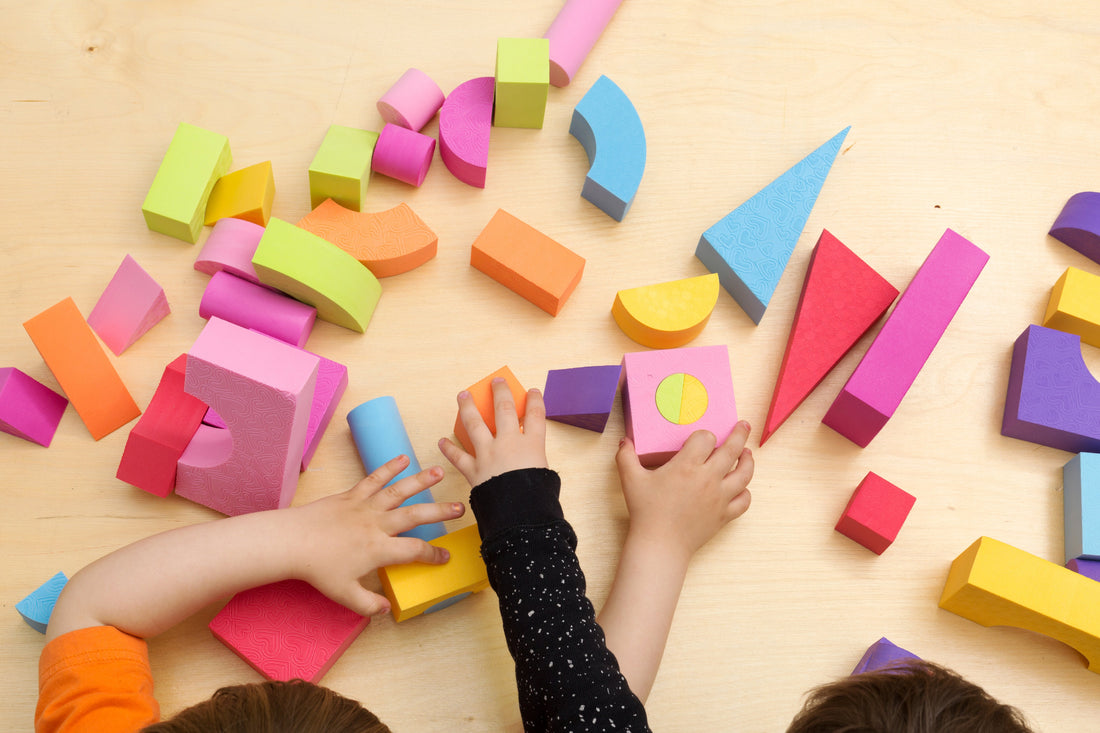
What's The Best Age To Start Teaching Kids?
A Parent's Guide to the Best Age to Start Teaching Kids
Every parent dreams of giving their child the best start in life. But when it comes to learning, many parents find themselves asking the same question: When is the best age to start teaching kids? The truth is, there's no one-size-fits-all answer, but understanding the key milestones in a child’s development can help you unlock their potential and set them up for success.
This guide breaks down various age ranges and offers practical tips to equip parents with the tools and confidence to nurture their child’s love of learning from the very beginning.
The Early Years Matter Most
Research shows that the brain develops rapidly during the first five years of life. Neuroscience has revealed that 90% of a child’s brain growth happens by the age of 5! These formative years are the foundation for lifelong learning, making it a crucial time to encourage curiosity and exploration.
Birth to Age 2
At this stage, children are learning through their senses. Babies absorb everything around them like little sponges, so even simple interactions can be incredibly meaningful.
- What you can do: Talk to your baby! Narrate your day, point out objects, and use facial expressions to build their communication skills. Reading picture books and singing songs is also a great way to make connections.
Ages 3 to 5
The preschool years are incredible for laying the groundwork for basic skills like language, counting, and social interactions. Children at this age thrive in playful, hands-on learning environments.
- What you can do: Introduce fun learning activities like ABC games, puzzles, and counting objects around the house. Role-playing and storytelling activities spark creativity and teach problem-solving. Most importantly, nurture their sense of independence by encouraging them to try new things.
Building Lifelong Learning Habits in School-Age Children
When kids enter school around age 6, structured education begins, but that doesn’t mean the learning stops at the classroom door. Cultivating positive habits during this time sets the tone for academic achievement and life skills.
- Ages 6 to 8: At this age, kids develop critical thinking skills and start to show preferences in what they enjoy learning. This is the ideal time to teach them the concept of perseverance and reward effort over outcomes. Offer plenty of praise for their achievements, and when they stumble, guide them gently rather than dwelling on failure.
- Ages 9 to 12: These are the prime years to encourage goal-setting and taking responsibility. Help your child explore their interests. Whether it’s science, art, or sports, support their passions! Introducing life skills at this stage, like saving money, time management, or cooking, will also allow them to discover independence in practical ways.
Every Child Learns at a Different Pace
It’s tempting to compare your child’s progress with others, but remember, each child develops at their own pace. Milestones provide guidance but are not rules. The goal isn’t to rush them but rather to meet them where they are and help them grow step by step.
Consistency Is Key
Whether you’re teaching your toddler how to form words or helping your tween master fractions, consistency and patience are essential. Children thrive when education is a part of the daily routine, even if it looks different for every family.
How to Stay Consistent
- Designate a specific time during the day for reading or learning activities.
- Use everyday moments as teaching opportunities (e.g., cooking together can teach maths).
- Encourage questions and praise curiosity.
- Celebrate progress, no matter how small!
Your Role as a Parent
As parents, you are your child's first and greatest teacher. By being present, providing encouragement, and filling their world with enriching experiences, you’re already setting them up for success.
It’s not about being perfect. It’s about making small, thoughtful choices that support their development and inspire their love of learning.
It’s Never Too Early to Start
The best age to begin teaching kids is wherever they are right now. Whether they’re babbling, asking endless "why" questions, or preparing for their first school project, every moment is a learning moment.
Start from where they are, guide them forward, and remember that every small step builds the path to future success. Being patient, consistent, and encouraging will make all the difference on their learning journey.
Looking for even more personalised tips to support your child’s growth? Subscribe to our newsletter today for expert advice, activity ideas, and a whole lot of inspiration for parents ready to empower their children!
